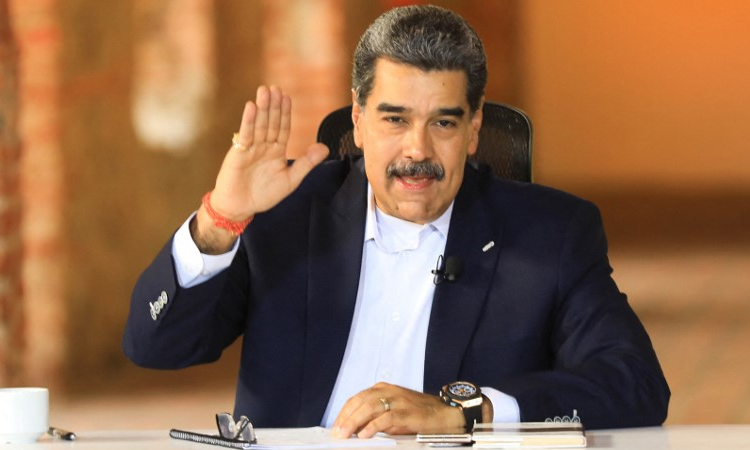News Flash

CARACAS, Oct 30, 2025 (BSS/AFP) - Venezuelan President Nicolas Maduro said Wednesday his country had intercepted three planes allegedly used for drug trafficking, in operations coinciding with a US military deployment against narco groups in the Caribbean.
"The day before yesterday... a drug-trafficking plane entered through the Caribbean. Our aviation detected it in a second," Maduro said at an official event.
"Today, two drug-trafficking aircraft entered from the north. And in accordance with our law, we have an interception law... bam, boom, bang!"
It was not immediately clear if this meant the planes were shot down.
Maduro said the action was taken "to make them respect Venezuela... What is that called? Exercising sovereignty."
Caracas has sought to showcase anti-drug efforts in the face of a massive US military deployment within striking distance of the country.
Earlier Wednesday, Venezuela's armed forces said they had destroyed two Colombian "narcotrafficking terrorist" camps on its territory and seized ammunition, all-terrain vehicles, tactical vests, and fuel.
Washington calls its deployment an anti-drug operation, but Caracas fears it is a guise for military action to oust Maduro.
US President Donald Trump's administration says Maduro is a drug lord, an accusation he denies, and has issued a $50 million reward for information leading to his capture.
Maduro insists there is no drug cultivation in Venezuela, which he says is used as a trafficking route for Colombian cocaine against its will.
US strikes on alleged drug-smuggling boats in international waters in the Caribbean and Pacific have killed at least 57 people in recent weeks.
Experts say the attacks amount to extrajudicial killings even if they target known traffickers.
The head of Venezuela's armed forces strategic command, General Domingo Hernandez Larez, said Wednesday that pamphlets of the Colombian ELN guerrilla group were found during the camp raids.
The ELN (National Liberation Army) insurgency group, holds territory near the Venezuelan border that experts say is an important source of coca and a gateway to the Caribbean coast -- where Colombian cocaine begins its journey to the rest of the world.